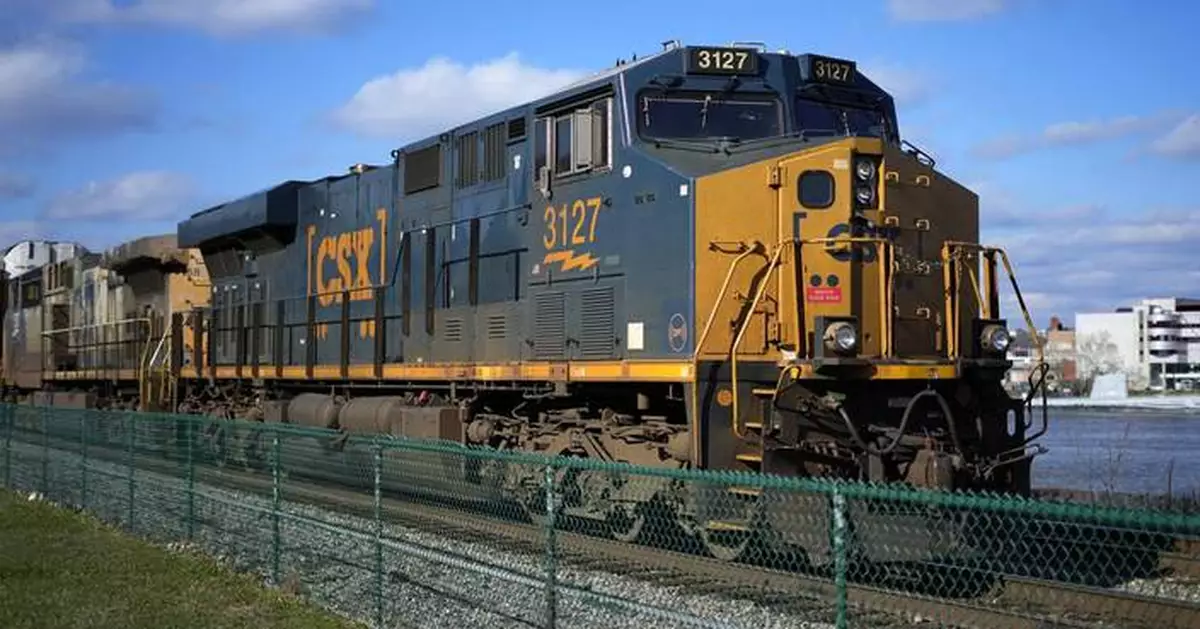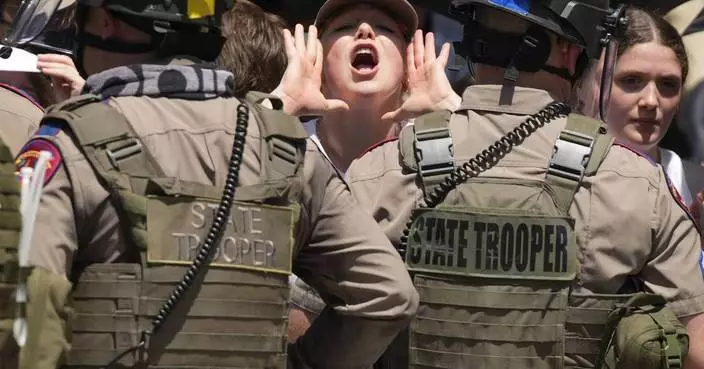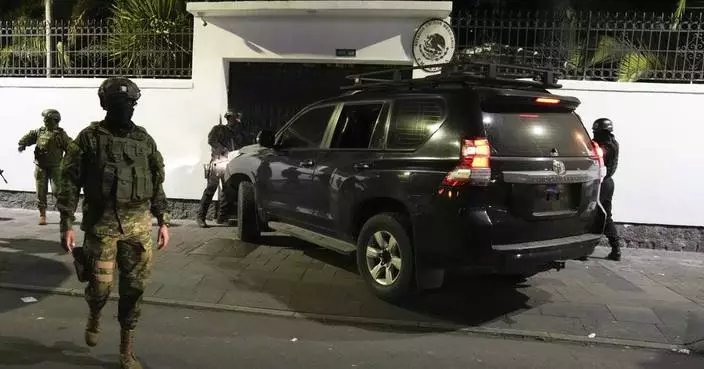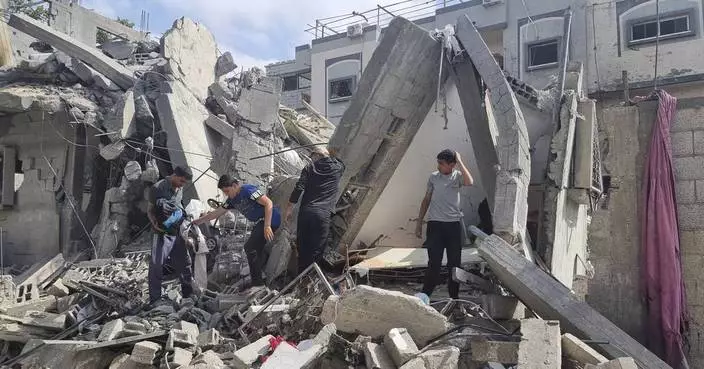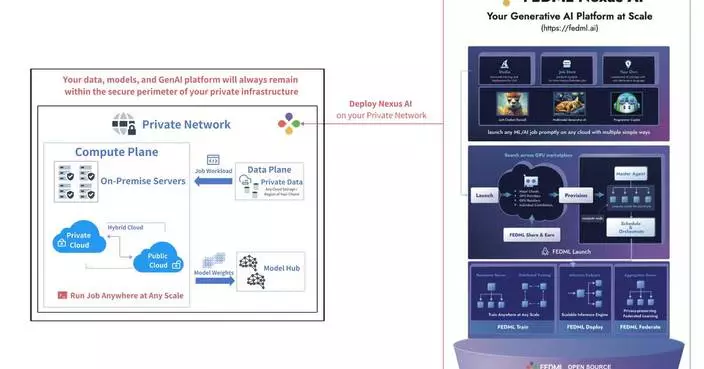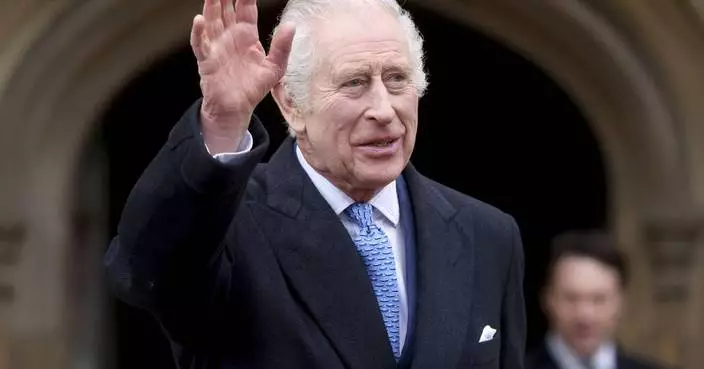CSX's first-quarter profit slipped 10% even though the railroad delivered 3% more goods, as shipments it handed shifted to a less-profitable mix.
The Jacksonville, Florida-based railroad said Wednesday that it earned $893 million, or 46 cents per share, in the first three months of the year. That's down from $987 million, or 48 cents per share, a year ago.
The results were slightly better than Wall Street predicted. The analysts surveyed by FactSet Research expected CSX to report earnings per share of 45 cents.
CEO Joe Hinrichs said he was pleased the railroad was able to deliver consistent customer service that helped it attract more business. He said many of the markets CSX serves are seeing “favorable trends,” so he’s optimistic about the rest of the year.
CSX said its revenue slipped 1% to $3.68 billion. Wall Street expected CSX to report revenue of $3.66 billion in the quarter.
The railroad reiterated that it expects revenue and shipping volume to grow at low- to mid-single-digit rates this year.
After the bridge collapse in Baltimore last month forced that port to close, CSX scrambled to reroute traffic to other East Coast destinations. But given that Baltimore is the second largest coal export port, coal shipments could be hurt. The port disaster will be felt in the railroad's second-quarter earnings, as workers are still trying to clear the wreckage of the bridge so the port can reopen.
CSX is one of the nation’s largest railroads, operating trains on more than 20,000 miles (32,000 kilometers) of track in 23 Eastern states and two Canadian provinces.
Shares of CSX Corp. were up about 1.8% in after-hours trading following the release of the earnings report.
Also Wednesday, CSX announced that Hinrichs’ predecessor as CEO, Jim Foote, had died. Foote led the railroad through its transition to the precision scheduled railroading operating model after industry titan Hunter Harrison died in 2017 — less than a year after taking over CSX and beginning the reforms to streamline the railroad.
The model relies on using fewer, longer trains with a mix of freight on them, so railroads can operate with fewer locomotives and employees. Since CSX put it in place, the model has been adopted by other U.S. railroads. Collectively, the major U.S. railroads have used the model to cut nearly one-third of their workforce, prompting unions to complain they believe railroads have become riskier because employees are spread so thin and preventative maintenance and inspections are being neglected.
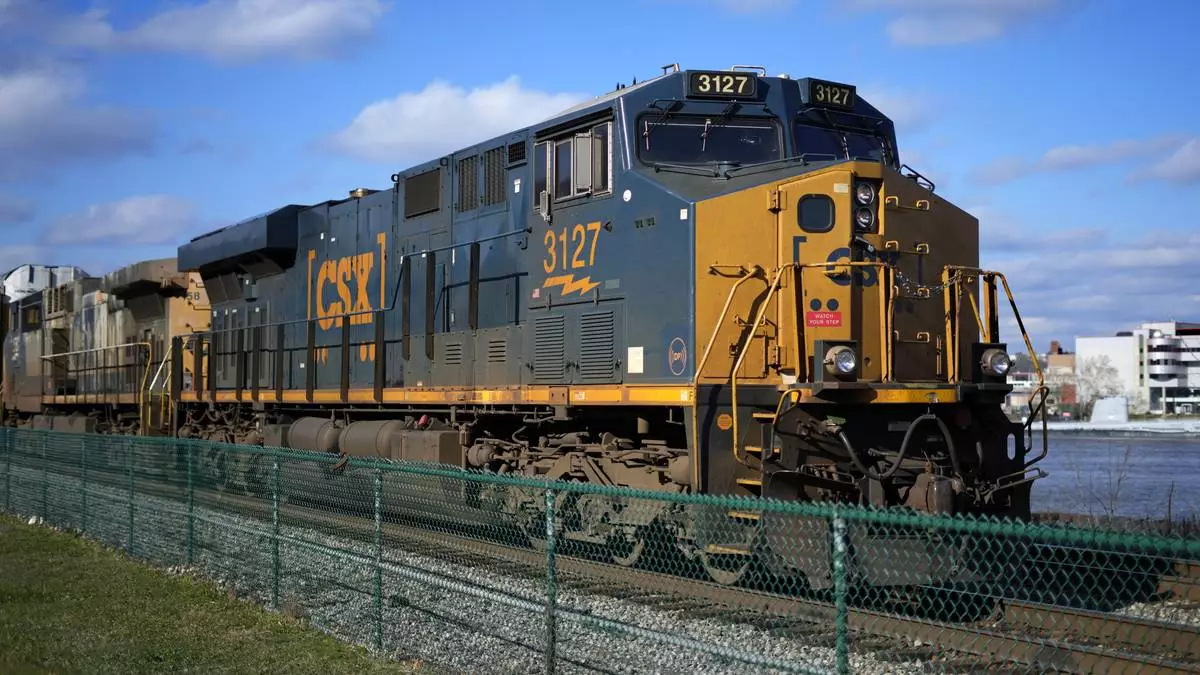
FILE - A CSX freight train sits on a siding in downtown Pittsburgh, Nov. 19, 2022. CSX reports their earnings on Wednesday, April 17, 2024. (AP Photo/Gene J. Puskar, File)
TEL AVIV, Israel (AP) — Israeli Prime Minister Benjamin Netanyahu pledged Tuesday to launch an incursion into the southern Gaza city of Rafah, where hundreds of thousands of Palestinians are sheltering from the almost 7-month-long war, as cease-fire negotiations between Israel and Hamas appear to be gaining steam.
Netanyahu's comments came hours before U.S. Secretary of State Antony Blinken arrives in Israel to advance the truce talks — which appear to be one of the most serious rounds of negotiations between Israel and Hamas since the war began. The deal is meant to free hostages, bring some relief to the population and avert an Israeli offensive into Rafah and the potential harm to civilians there.
Speaking to a group of bereaved families and one organization representing families of hostages held by militants, Netanyahu said Israel would enter Rafah to destroy Hamas’ battalions there regardless of whether a truce-for-hostages deal was struck or not.
“The idea that we will stop the war before achieving all of its goals is out of the question," Netanyahu said, according to a statement from his office. “We will enter Rafah and we will eliminate Hamas' battalions there — with or without a deal, to achieve the total victory.”
Netanyahu has faced pressure from his nationalist governing partners not to proceed with a deal that might prevent Israel from invading Rafah, which it says is Hamas' last major stronghold. His government could be threatened if he agrees to a deal because hard-line Cabinet members have demanded an attack on Rafah.
But with more than half of Gaza's 2.3 million people sheltering there, the international community, including Israel' top ally the U.S., has warned Israel against any offensive that puts civilians at risk.
It was not clear if Netanyahu's comments were meant to appease his governing partners or whether they would have any bearing on any emerging deal with Hamas.
Netanyahu was addressing the Tikva Forum, a small group of families of hostages that's distinct from the main group representing the families of captive Israelis that has indicated it prefers to see Hamas crushed over the freedom of their loved ones. Families and their supporters have demonstrated in the thousands every week for a deal that would bring the hostages home, saying it should take precedence over military action.
The current deal being discussed, brokered by the U.S., Egypt and Qatar, would see the release of dozens of hostages in exchange for a six-week halt in fighting as part of an initial phase, according to an Egyptian official and Israeli media. Hundreds of Palestinian prisoners held by Israel would also be released.
But a sticking point remains over what happens next. Hamas has demanded assurances that an eventual release of all hostages will bring a complete end to Israel’s nearly seven-month assault in Gaza and a withdrawal of its troops from the devastated territory. Israel has offered only an extended pause, vowing to resume its offensive once the first phase of the deal is over. The issue has repeatedly obstructed efforts by the mediators during months of talks.
Netanyahu has repeatedly rejected stopping the war in return for hostage releases, and says an offensive on Rafah is crucial to destroying the militants.
The Israel-Hamas war was sparked by the unprecedented Oct. 7 raid into southern Israel in which militants killed around 1,200 people, mostly civilians, and abducted around 250 hostages. Israel says the militants are still holding around 100 hostages and the remains of more than 30 others.
The war in Gaza has killed more than 34,000 Palestinians, according to local health officials. The war has driven around 80% of Gaza’s population of 2.3 million from their homes, caused vast destruction in several towns and cities, and pushed northern Gaza to the brink of famine.
Follow AP’s coverage of the war at https://apnews.com/hub/israel-hamas-war
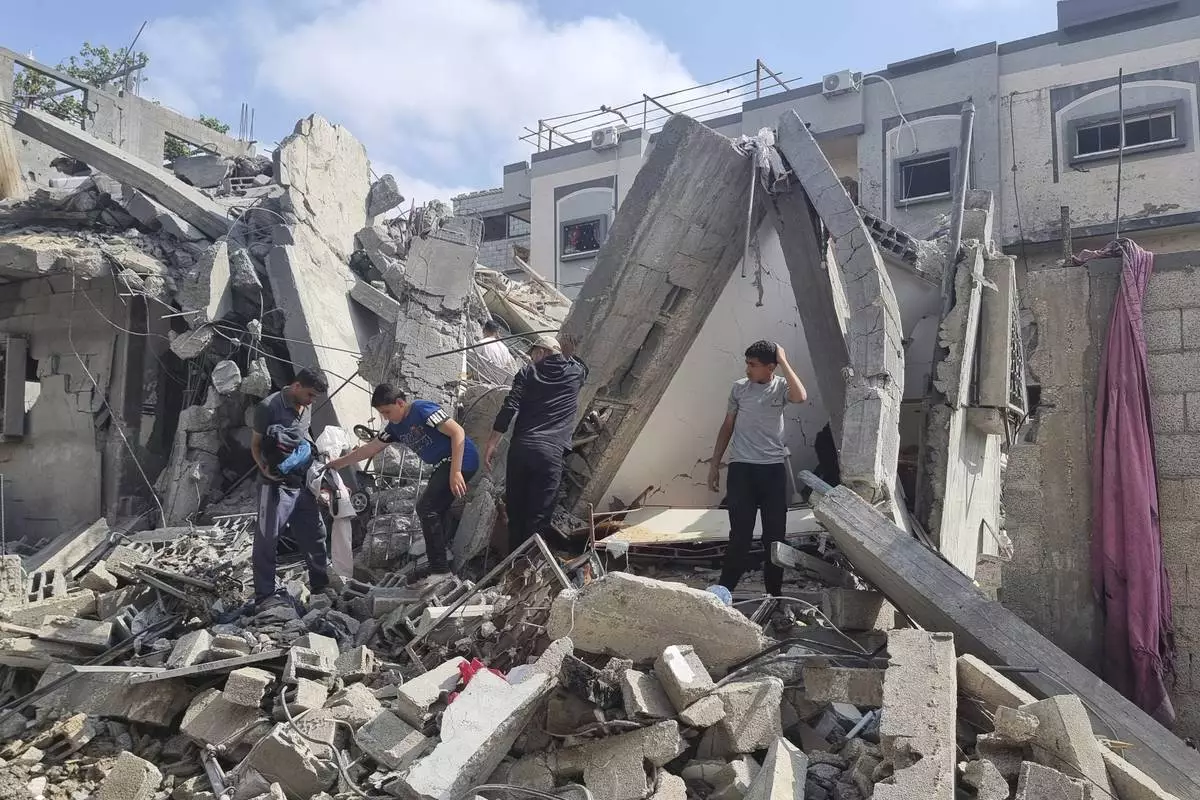
Palestinians look at the destruction after an Israeli airstrike in Rafah, Gaza Strip. Monday, April 29, 2024. (AP Photo/Mohammad Jahjouh)
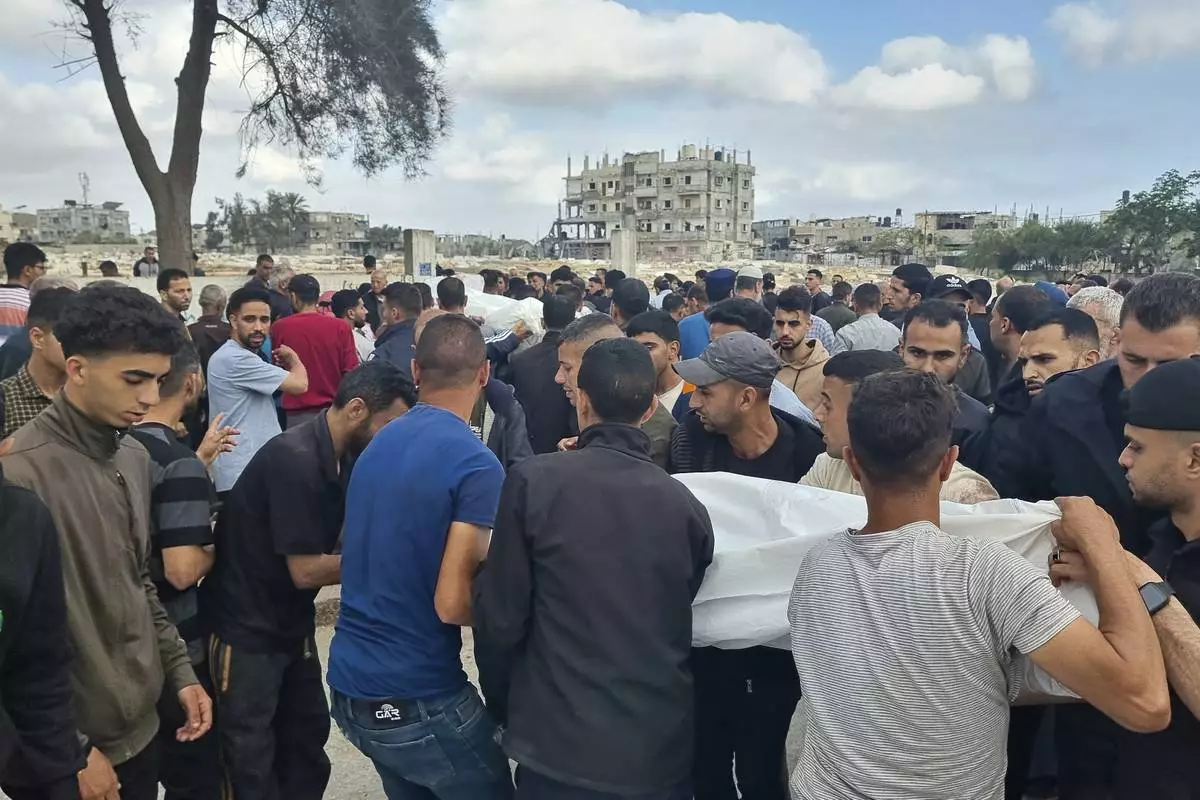
Mourners carry the bodies of members of the Abu Taha family who were killed in an Israeli airstrike, during their funeral at Al-Salam cemetery, east of Rafah, Gaza Strip. Monday, April 29, 2024. (AP Photo/Mohammad Jahjouh)



